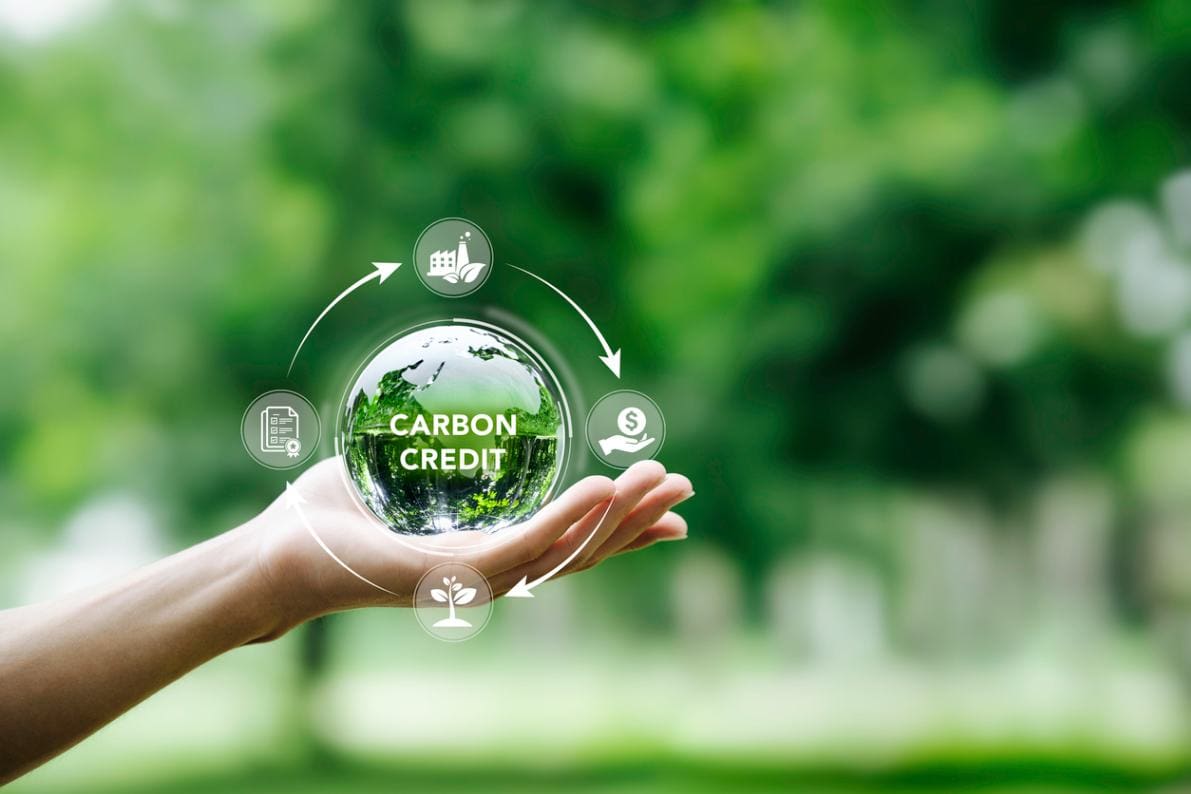
Ahad Hassan
In a landmark development, the government of Pakistan has officially issued comprehensive guidelines for carbon market trading, setting the stage for the establishment of a formal carbon trading system in the country. This initiative is a significant milestone in Pakistan’s journey toward sustainability, economic development, and climate resilience. The guidelines aim to provide a clear roadmap for the operational functions of carbon markets, aligning Pakistan with international climate commitments while fostering green job creation and facilitating private sector engagement.
Carbon markets are a critical tool in global efforts to mitigate climate change. By allowing businesses and nations to buy and sell carbon credits, carbon markets place a price on carbon emissions and incentivize reductions. As the world seeks to curb the impacts of climate change, carbon trading mechanisms have become an essential part of the global solution.
For Pakistan, a country already experiencing the devastating effects of climate change, from extreme heatwaves to catastrophic flooding, the introduction of a carbon market is a crucial step toward reducing emissions while boosting economic growth. The newly issued guidelines set the stage for the establishment of a carbon market that will not only contribute to climate resilience but also create new opportunities for businesses and communities to engage in environmentally responsible practices.
The primary purpose of these guidelines is to establish the framework for carbon markets in Pakistan, providing a comprehensive roadmap for their operational functions. The document outlines several key objectives By introducing carbon trading, the government aims to create an innovative market-driven solution for climate change. The establishment of carbon markets will encourage businesses to reduce emissions, invest in green technologies, and tap into new sources of revenue. The government expects this move to stimulate green economic growth, particularly in sectors like renewable energy, energy efficiency, and sustainable agriculture.
Pakistan, one of the most vulnerable countries to climate change, has long struggled with rising temperatures, shifting weather patterns, and natural disasters. The carbon market will enable Pakistan to meet its climate targets more effectively by reducing greenhouse gas emissions, fostering sustainable development practices, and enhancing its resilience to climate-related risks.
A critical feature of the new guidelines is their focus on private sector participation. The government recognizes the vital role that businesses will play in achieving national climate goals. By offering incentives such as tax breaks, carbon credits, and access to new financial streams, the guidelines encourage private sector investments in cleaner technologies and emissions reductions. This also aligns with Pakistan’s broader vision of creating a sustainable, market-based economy.
Pakistan is a signatory to the Paris Agreement, which sets global targets for reducing carbon emissions and limiting global temperature rise. The guidelines aim to ensure that Pakistan’s carbon trading system aligns with international standards, facilitating the country’s participation in global carbon markets. This will allow Pakistan to sell carbon credits to other countries or industries, creating a potential revenue stream while contributing to the global effort to mitigate climate change.
One of the key promises of the carbon trading system is job creation in green sectors. As the carbon market grows, it will stimulate employment opportunities in areas such as renewable energy, sustainable agriculture, carbon management, and environmental consulting. This will not only support Pakistan’s green economy but also offer long-term benefits to communities across the country.The success of any carbon market hinges on the integrity and transparency of its processes. To ensure credibility and accuracy, the guidelines emphasize the need for a robust Measurement, Reporting, and Verification (MRV) system. This system will be essential for tracking emissions reductions, certifying carbon credits, and ensuring that participants adhere to the required standards.
Through the MRV system, the government will be able to monitor progress towards emissions reduction targets, verify the validity of carbon credits, and prevent fraudulent practices. The guidelines outline the establishment of a transparent, accountable reporting framework that will build trust among stakeholders and ensure the market operates efficiently.
While the issuance of these guidelines is a significant step, the full establishment of Pakistan’s carbon market will require careful planning, infrastructure development, and ongoing stakeholder collaboration. The government will need to work closely with private sector players, environmental organizations, and international partners to ensure the smooth implementation of the carbon market.
The guidelines also highlight the need for public awareness and education on the benefits of carbon trading. By promoting understanding and engagement among businesses and the general public, the government aims to create a vibrant, sustainable carbon market that delivers tangible benefits for both the environment and the economy.
Pakistan’s decision to issue guidelines for carbon market trading represents a bold and forward-thinking approach to addressing the challenges of climate change. The initiative provides a clear roadmap for creating a dynamic carbon market that will not only help Pakistan meet its international climate obligations but also contribute to long-term economic growth and resilience.
Through private sector engagement, the creation of green jobs, and the implementation of a rigorous MRV system, the guidelines set a solid foundation for the success of the carbon market. As the global community moves toward a low-carbon future, Pakistan’s leadership in establishing this market will position the country as a key player in the global fight against climate change, demonstrating that economic development and environmental sustainability can go hand in hand.
The government’s proactive steps in issuing these guidelines reflect its commitment to a sustainable future, offering hope and opportunity for future generations. Pakistan is now poised to reap the environmental, economic, and social benefits of a well-functioning carbon market—an initiative that holds promise for both the nation and the planet






